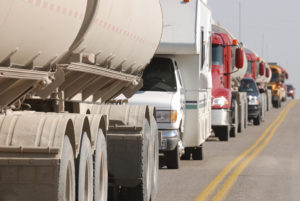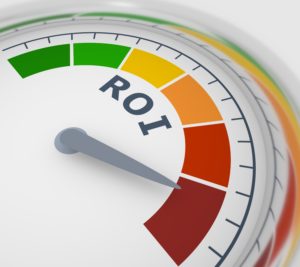We are in the heart of hurricane season, and businesses that rely heavily on fuel for their operations, particularly those with large fleets, face unique challenges. Potential disruptions caused by severe weather conditions could significantly affect your operations if not adequately planned for. Keep reading for our guide that will help you know how to prepare your business and fleet for such potential disruptions and ensure smooth sailing through the stormy season.
1. Maintain Open Communication with Your Fuel Provider
One of the most critical steps in preparing your business for hurricane disruptions is to maintain open and clear communication with your fuel provider. Understanding their capabilities and contingencies during a storm or severe weather event is vital to ensure that your operations continue smoothly. Do they have resources, assets, or access to supply outside of their usual territory? Such an understanding becomes crucial when a hurricane hits your local area and potentially disrupts your regular fuel supply. Therefore, involve your fuel provider in your planning process as early as possible, which will help you formulate a more robust response strategy.
2. Develop a Comprehensive Hurricane Preparedness Plan
Businesses should create a comprehensive hurricane preparedness plan, outlining their strategies to handle various scenarios such as disrupted supply chains, transportation challenges, and communication difficulties. Identify critical assets like inventory and equipment and decide how they will be protected during a storm. Assess your vulnerabilities and determine what steps can be taken to minimize risks.
3. Secure Fuel Contracts in Advance for your fleet
The economic principle of supply and demand dictates that prices can skyrocket when demand surpasses supply. This is especially true during hurricane season, when both individuals and businesses scramble to stockpile fuel. Securing fuel contracts in advance allows you to lock in your fuel consumption rates at a predetermined price, shielding your fleet budget from unanticipated price spikes and ensuring that your business can keep running without taking a hit.
4. Establish Reliable Carrier Connections
Contingency plans are key during the hurricane season. If your usual fuel supplier is unable to meet your needs due to the storm, having solid connections with multiple suppliers can ensure that your fuel needs are met. A wide-ranging network of resources is necessary to maintain operations when a crisis strikes. Verify that your carriers have backup plans in place and be ready to leverage these connections when needed.
5. Prepare for Unforeseen Circumstances for your fleet
Having multiple fueling options for your fleet is critical in stormy weather. If one carrier is unable to meet your needs, you need to have a Plan B, and even a Plan C, in place. While it may be tempting to rely on your own inventory, it’s wise to reserve it for use after the storm. In some situations, retail fueling may be a more practical option. Though it might be an added expense, the reliability and convenience it provides may prove invaluable during hurricane season.
By having a comprehensive plan in place for different scenarios, you can avoid hasty decisions during a crisis and ensure that your fleet remains fueled with minimal impact on your business’s financial health. As Benjamin Franklin wisely said, “By failing to prepare, you are preparing to fail.”
At Diversified Energy Supply, we understand the complexities of managing fuel supplies during severe weather events. Our team is equipped to guide and support you through this process, helping you to formulate effective plans, establish reliable supply connections, and mitigate risks associated with fuel price spikes.
If you’re in need of assistance preparing your fleet for the upcoming hurricane season, don’t hesitate to reach out to us. We’re here to ensure your operations continue smoothly, regardless of the weather conditions. Together, we can weather any storm. Contact us today, and let’s start planning for a disruption-free hurricane season.








